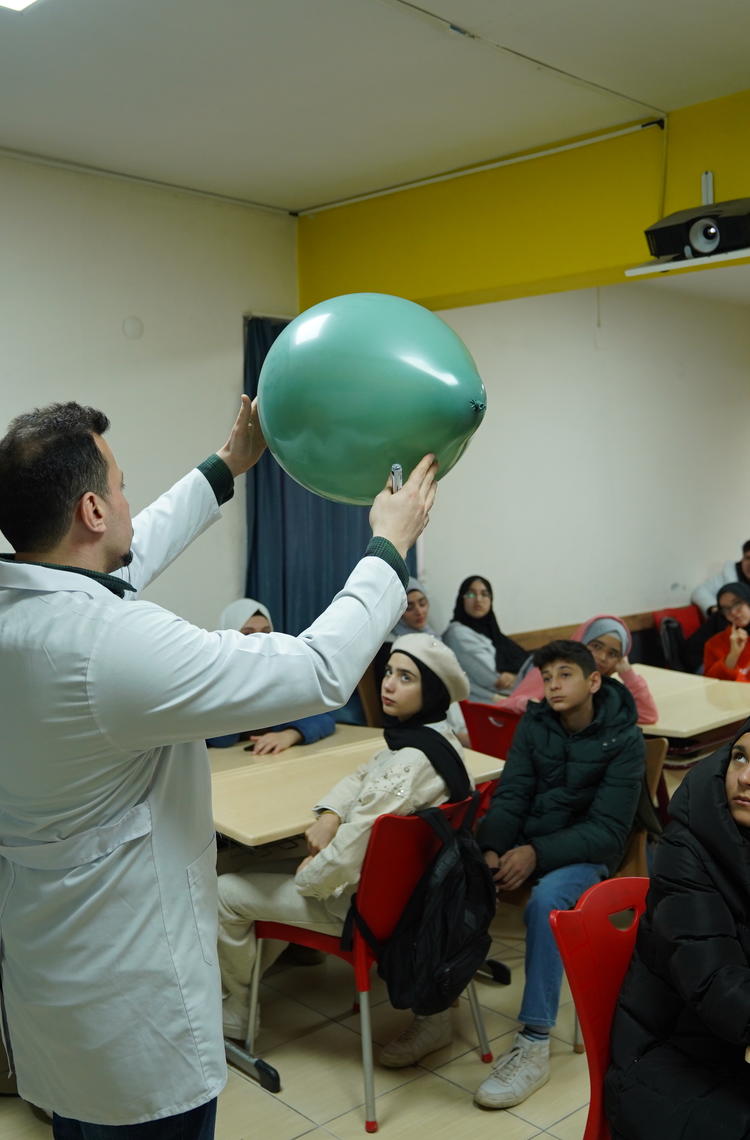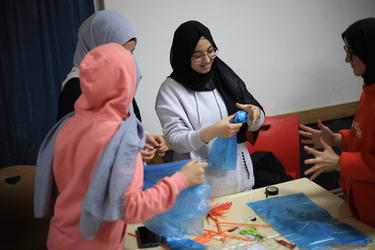In collaboration with Nama’a Academy, Phoenix Space and the Airbus Foundation proudly announce the successful implementation and completion of the High Altitude Balloon Camp, a pioneering educational initiative designed for refugee youth in Killis, Turkey. This unique program offers a blend of theoretical instruction and hands-on experiments in STEM competencies. Its successful completion highlights our ongoing commitment to empowering marginalised communities through STEM education.
This year, the UNHCR anticipates the displacement of 130.8 million people. Amid this context, underserved communities at the forefront of humanitarian crises face increasing barriers to reclaiming their livelihoods. The situation disrupts the education and future opportunities for millions of youth. We urgently require responsible solutions that enable and empower refugees to rebuild, work, thrive and transcend beyond displacement.
In response, Phoenix Space implements durable solutions that capitalise on the opportunities present in an increasingly tech-driven society. Through initiatives like the High Altitude Balloon Camp, they empower refugee and marginalised youth with STEM proficiencies and capabilities anticipated to be most sought-after by employers globally in the forthcoming decade. The aim is to assist these resilient, underserved young people in unlocking opportunities within the digital age. The programme demonstrates their firm dedication to democratising education and commitment to equitable opportunities.
The High Altitude Balloon Camp
The High Altitude Balloon Camp served Syrian students aged 13-18 who currently seek refuge in Turkey. Sixty participants immersed themselves in 14 hours of comprehensive online lessons, followed by an intensive 5-day practical camp. The initial phase focused on theoretical instruction, aiming to instil a scientific mindset and teach problem-solving methodologies through evidence-based thinking. The goal was to present fundamental STEM concepts in a captivating, accessible, and culturally sensitive manner. Subsequently, the practical camp enabled students to apply their theoretical knowledge through hands-on investigations and experiments exploring thermodynamics, mechanics, and geometry. The activities included combining individual and group tasks to enhance collaborative skills and knowledge sharing, culminating in a final presentation.
Rachel Schroeder, Managing Director of the Airbus Foundation commented on the completion of the course:
At the Airbus Foundation, we will continue to re-evaluate and update our Youth programmes to ensure we support the communities that need our support the most. Through this programme with Phoenix Space, we aim to help inspire young people and enable them to develop skills that will empower them to increase their chances to find their place in the world .
The Founder and CEO of Phoenix Space Alevtina Nepomniachtchikh added:
We continue to be committed to advancing our mission of leveraging STEM education as a catalyst for change. By fostering an inclusive learning environment and dismantling participation barriers, we are dedicated to creating opportunities for every marginalised and displaced child to unlock their full potential and pave the way for a brighter, more inclusive, and knowledgeable future.


